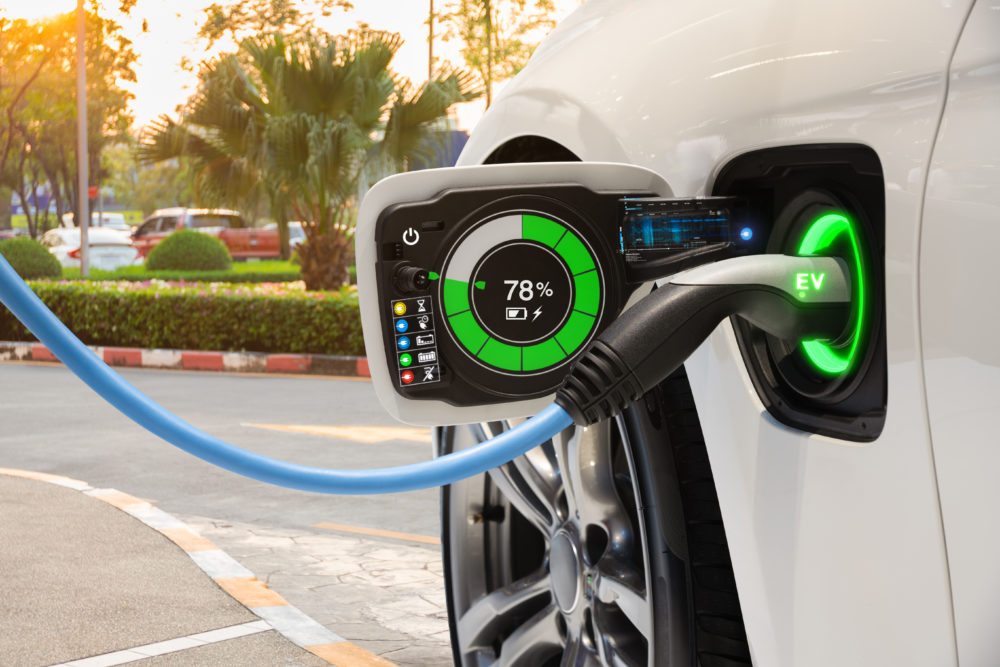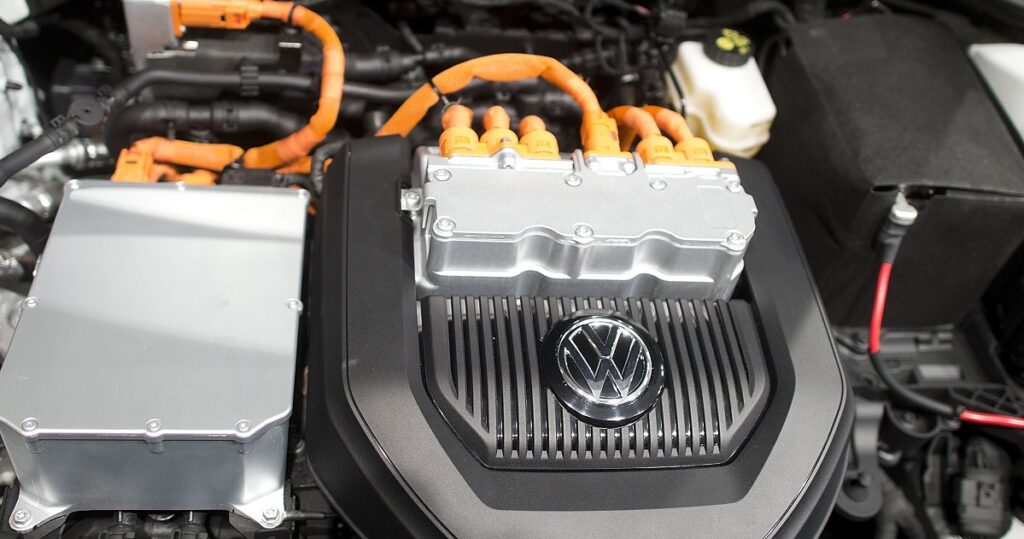Electric cars are powered by electricity from batteries, and they use very little lubricant. In fact, most electric cars use no lubricant at all! The only time an electric car might need a little lubricant is if the car has a gearbox, and even then, it would only need a very small amount.
Total Lubrifiants, a global industry leader in marine, automotive, trucking, and industrial applications, manufactures and distributes a wide range of environmentally friendly products and services. Total’s electric mobility division has been a pioneer for decades, and its new dedicated line is a sign of its continued leadership. The lubrication of an internal combustion engine is very different than that of an EV motor. At the CTI Symposium in Berlin, Total demonstrated two electric vehicle lubricant ranges. Fluids in an EV do not need to be changed on a regular basis and therefore have lower volume levels than those in an internal combustion engine. Nonetheless, Total’s goal is to become the leader in electric mobility globally.
Lithium grease, which is frequently used in EV batteries, can be used to lubricate door locks and hinges. Dedicated lubricants, on the other hand, must meet a variety of requirements to ensure that they have the same properties as electric motors with varying degrees of power.
How Many Fluids Are In An Electric Car?

Furthermore, these vehicles have a different drivetrain, eliminating the need for oil changes on a regular basis. Electric vehicles (EVs) still use transmission (direct-drive) lubricant, coolant, brake fluid, and windshield washer fluid, all of which must be checked and replaced on a regular basis.
Electric vehicle (EV) fluids have seen a significant increase in sales. Electric vehicles (EVs) will account for 400 million of all road vehicles by 2035. When you lubricate your EV, you use the same technique that you would use to lubricate a gasoline-powered car. In your EV, you can use oil, grease, water, lubricant, coolant, and any other fluid. The engine in an all-electric vehicle does not need to be oiled. Because they don’t use oil, they use water as a substitute. coolants must be kept in the EV for ten to twenty years.
When a car is powered up, its internal combustion engine requires 50 to 90 liters of fuel per year. It has been proven that it is more expensive to repair an electric vehicle than to maintain one. An EV has a service cost that is twice as high as that of a gasoline-powered vehicle. Keeping your EV in top condition will help you save money on it. It is recommended that EV owners have their batteries serviced on a regular basis.
It is critical for EV owners to understand the vehicle’s needs and to take the necessary precautions to do so. It is critical to understand this in the case of electric vehicles, which require a significant amount of fluids and lubes. Electric vehicles are cool to the touch, but they require lubrication as well. It is critical to replace the coolant in an EV every so often. Because EV coolant is a low viscosity fluid, it is critical that it be lubricated with a compatible lubricant. In addition to EV performance requirements, many conventional engine oils require similar specifications. Several EV-specific oils are now available, thanks to the fact that EV engines do not use traditional engine oils. Many of those oils also have performance requirements that are similar to those found in conventional vehicles. To stay up to date on the various types of lubricants and fluids that an EV requires, it is critical to educate yourself on them.
The Different (and Better) World Of Electric Cars
Electric cars, in general, are more efficient than traditional cars in a few key ways. One advantage of this method is that the oil is not changed on a regular basis. They also use a non-performance brake fluid in place of transmission fluid, coolant, and brake fluid.
How Much Oil Does An Electric Car Use?

The electric vehicle does not use oil. Because electricity is stored in batteries, they do not use motor oil when rotating the engine. One of the benefits of owning an electric vehicle (EV) is that it can save money on maintenance due to fewer moving parts.
Several countries have seen decades-long periods of high inflation due to high energy prices. By 2021, the world will be home to the largest number of oil producers. As a group, the United States, Saudi Arabia, and Russia produced more oil than any other top ten country combined. The organization will reduce production by 10 million barrels per day in 2020. Russia and Saudi Arabia were the world’s two largest oil suppliers in 2021. Norway was the only country to make the top 15 list, accounting for 2.5% of global oil production. Europe has been particularly hard hit as a result of its reliance on Russian fossil fuel exports. In the rest of the world, a production increase or the release of reserves is increasing the amount of oil available.
Electric vehicles are powered by a battery and an engine that is powered by an electric motor. Because EV engines do not have pistons, valves, or other moving parts that require lubrication, traditional engine oil cannot be used to maintain those components. The oil used in EV batteries is derived from the electric motor, which is cooled by the air that it displaces. Electric vehicles do not require motor oil, but they do require regular maintenance to ensure that their electric engines continue to work properly.
Electric Cars: Do They Really Save You Money?
There is no short answer for this question. Electric vehicles do not need to use motor oil because they do not have the same internal combustion engine as gasoline engines. Plug-in hybrids (and hybrids) require traditional maintenance because they still employ an ICE to improve fuel efficiency; an ICE is combined with an electric motor to achieve the same results.
To store a single barrel of oil-equivalent energy in batteries, one battery must be made of 100 barrels of oil. The electric vehicle can produce approximately 1.5 million barrels of oil per day.
Electric vehicles are becoming less popular as a niche climate technology, thanks in part to their oil-free operation. Electric vehicles do not need to be changed on a regular basis.
Do Electric Vehicles Need Lubrication?

Electric vehicles need lubrication to keep them running smoothly. Lubrication helps to protect the moving parts of the vehicle from wear and tear, and it can also help to keep the vehicle cooler by reducing friction.
The Advantages Of Electric Cars
There is no need to store an extra can or bottle of oil in your electric car because the engine does not require it. Motor oil is required to lubricate several moving pieces in a traditional gas-powered car’s combustion engine. Because it does not require this type of maintenance, electric vehicles do not require it. The same scheduling requirements apply to all-electric vehicles as they do to gasoline-powered vehicles.
How Are Electric Car Engines Lubricated?

Electric cars, on the other hand, do not have these capabilities. Electric vehicles such as the Chevrolet Bolt EV, Nissan Leaf, and others are powered by a battery and an electric motor. A valve, a pistons, an engine, or a moving part do not require lubrication. Electric vehicles do not need to be serviced on a regular basis because of this.
Electric vehicles do not have a combustion engine because they do not have all of their moving parts. Other fluids, oils, and lubricants, on the other hand, are extremely important to EV owners. Even if you don’t need an EV oil change, it is still critical to take care of the gearbox and electric motor. There are other maintenance tasks that must be performed on electric motors on a regular basis, despite the fact that they do not require traditional oil. If you drive more than 14,000 miles per year with your EV, you should schedule a bi-annual EV check-up. If you have an EV battery warranty, it’s also a good idea to be aware of it. Electric vehicles do not require the same level of maintenance as traditional vehicles because they do not contain an internal combustion engine. You should never try to repair an EV battery that is not covered by your warranty. As a result, your overall cost savings will be significantly enhanced, not to mention the time you will save when comparing EV ownership vs. traditional ICE ownership.
Do Electric Cars Use Lubricants
Electric cars use a variety of lubricants to keep their components moving smoothly. These include motor oil, transmission fluid, and brake fluid.
Electric mobility has been one of the most significant changes in the automotive industry since the early twentieth century. In a traditional gas-powered vehicle, oil is a critical component that helps to lubricate the many moving parts. An internal combustion engine, on the other hand, is not the same as an EV motor. If you’re looking into purchasing an electric car, it’s a good idea to be aware of its regular maintenance requirements. It is used to regulate the heat generated by your EV’s lithium-ion battery during its charging process. A comprehensive coolant service is required once every seven years on an EV. Electric vehicle transmission oil must be extremely heat resistant.
If the brake fluid is not properly topped up, it can lead to a faulty braking system. petrochemicals are a diverse class of physical entities that provide a variety of important properties. Electric vehicle adoption will benefit greatly from the adoption of these batteries. Electric vehicles use less oil per mile than gasoline-powered vehicles. An EV, on the other hand, does not have the same role to play in terms of oil. An EV does not have a gas-guzzler under the hood, and overall, less drivetrain parts are available.
Electric Cars And Their Fluids
Electric vehicles are powered by renewable resources, but they use other fluids to lubricate their various parts.
Dedicated Ev Lubricants
Dedicated ev lubricants are designed specifically for use with electric vehicles. They are formulated to protect against wear and corrosion, and to provide optimum performance in all weather conditions.
A Global and Regional Analysis of Lubricants for Electric Vehicles The fluids and lubricants market for electric vehicles was estimated to be $1,387.7 million in 2021, with a 28.81% CAGR and a total value of $17,411.9 million by 2031. Based on 2021, public companies in the global fluids and lubricants market account for around 95% of the total market for electric vehicles. There are several well-known players in this market. The first type of company is a private company. Type 2: Public company. The global market for electric vehicle fluids and lubricants is expected to reach $US 20313 million by 2021, according to the Global Fluids and Lubricants Market for Electric Vehicles The components of fluids analyzed include batteries, hybrid electric vehicles ( HEVs), plug-in hybrid electric vehicles (PHEVs), and fuel cells. The value, volume, and distribution of fluids are analyzed by the distribution channel in terms of OEM, aftermarket, and demand.
Do Evs Need Transmission Fluid?
Although engine oil is not required for your EV, transmission fluid is. The health of your transmission fluid ensures that it runs smoothly and that your gears are properly maintained. Car coolant keeps your battery and other vehicle systems from overheating.
Brake Fluid Vs. Transmission Fluid: What’s The Difference?
What is the difference between brake fluid and transmission fluid?
The brake fluid, as well as the transmission fluid, helps to keep the gears in proper alignment.
What Is Ev Oil?
Extra-virgin olive oil comes from the olive tree, whereas regular olive oil comes from a variety of oils, including cold-pressed and processed ones. The term EVOO is defined as the process by which olives are grinded into a paste, then pressed into a solution to extract their oil. Cold-pressed is frequently confused with hot-pressed because it does not require heat.
The Top Speed Of Electric Vehicles
Electric vehicles have lower top speeds than gasoline-powered vehicles due to a few factors. Electric vehicles have less moving parts than gasoline-powered vehicles, which necessitate less maintenance. Electric vehicles also use electric energy stored in a battery cell to drive their engines. Electric vehicles have lower top speeds because the motor can only work at a certain speed before the battery runs out, which is why they have lower top speeds.
Electric vehicles have a lower top speed because manufacturers limit top speeds in order to conserve energy. The top speed of electric vehicles is lower because the battery will run out of power faster than the top speed of a gas-powered vehicle.
World Lubricant Demand
The world lubricant demand was estimated at 48.2 million metric tons in 2015. The demand for lubricants is projected to grow at a CAGR of 2.8% from 2016 to 2021 to reach 54.4 million metric tons. The automotive lubricants segment held the largest market share of 67.4% of the global lubricants market in 2015. The automotive lubricants market is projected to grow at a CAGR of 2.9% from 2016 to 2021. The growing demand for passenger cars and commercial vehicles is expected to drive the automotive lubricants market.
According to a new report from Coherent Market Insights, the global lubricant market is expected to reach a value of US$ 204.9 billion by 2028. Lubricants are used in the automotive, marine, airplane, and other transportation media industries. Several types of lubricants, such as high-performance and medium-duty, are commonly used in vehicles. lubricants are typically used in various types of power generation, including hydro turbines, wind turbines, and solar panels. ExxonMobil Corp., Pennzoil, Quaker Chemical Corp., Royal Dutch Shell Co., British Petroleum, Chevron Corp., Total SA, JX Nippon Oil & Energy Corp., Lukoil, and Philips 66 Company are among the major players in the global lubricants market. Mergers and acquisitions, strategic collaborations, new product launches, and business expansion are just a few of the strategies used by key players to keep their market share. The Global Driveline Additives Market, By Product Type (Transmission Fluid Additives, Gear Oil Additives), By Application (Passenger Cars, Commercial Vehicles, Off-Highway Vehicles), and Forecast to 2027) Our mission is to empower clients with the knowledge and tools needed to realize transformational growth through global market intelligence and consulting.
Gulf Oil Lubricants India Is The Market Leader In Lubricants In India
In India, there is a high demand for lubricants. According to a recent study, the lubricant business in India will more than double by 2035. As a result, the business is expanding and attracting more investors because its profit is so high in this model. Profit has skyrocketed in the automotive sector as a result of the increased use of commercial and passenger vehicles. The Hinduja Group owns Gulf Oil Lubricants India Ltd (GOLIL), which is the market leader in lubricants in India.